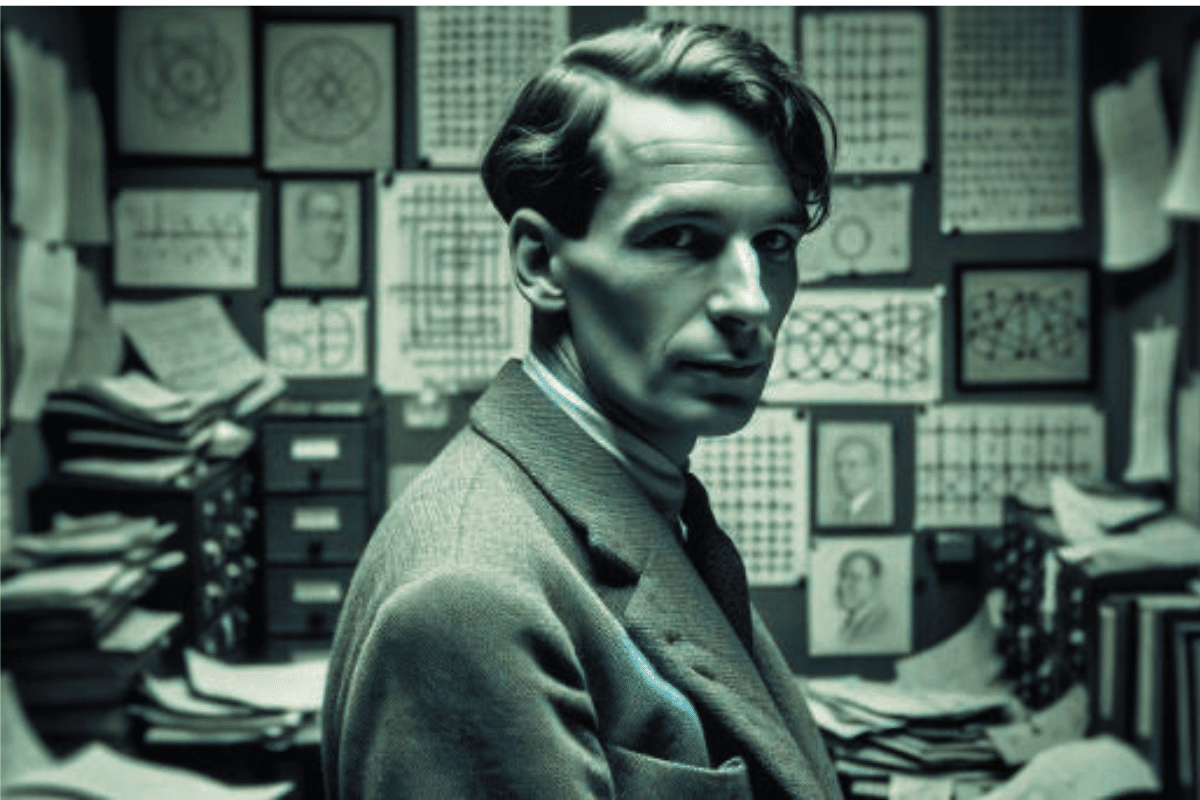
Who was Alan Turing?
Alan Turing is one of the most influential and brilliant figures of the 20th century, often considered the father of modern computer science and the theory of artificial intelligence. His pioneering work laid the foundations for computers as we know them today, as well as playing a crucial role in breaking codes during the Second World War.
Although Alan Turing’s work and intuitions are today recognized as brilliant and pioneering, his life was unfortunately marked by some tragic events caused by a society that appreciated his professional contribution, but condemned his personal life choices. The heavy pressure received by Turing negatively influenced one of the most brilliant minds in the history of humanity, to the point of causing his death. Let’s pay homage to Alan Turing, telling you who he was.
Who is Alan Turing?
Alan Turing was a British mathematician, logician, and cryptographer, born in London on June 23, 1912. He is best known for his work on the concept of a “universal machine,” now known as the Turing Machine, which represents a theoretical model of automated computation. This concept is considered the theoretical foundation of modern computers, and many of Turing’s insights remain relevant in computer science today.
Turing is also famous for the Turing Test, an experiment designed to determine whether a machine can exhibit intelligent behavior indistinguishable from that of a human. The Turing Test is still a key reference in discussions on artificial intelligence.
Alan Turing’s contribution to World War II
One of the most famous episodes in Turing’s life is his critical role during World War II. While working at Bletchley Park, the British government’s code-breaking center, Turing led the development of techniques and machines to crack the encrypted messages generated by the Enigma machine, which was used by Nazi Germany for secret communication.
Turing’s machine, known as the Bombe, succeeded in decoding thousands of encrypted messages daily, giving the Allies a significant strategic advantage and, according to many historians, shortening the war by several years. His contributions to cryptography and the war effort were recognized only decades later, but they remain one of his most influential achievements.
The Turing Machine: the birth of the modern computer
One of Alan Turing’s most lasting contributions to computer science was the creation of the Turing Machine, a theoretical model that describes the functioning of a universal computer. The Turing Machine is capable of performing any computable operation, as long as it is programmed with an appropriate algorithm. This concept is the foundation of modern computers, demonstrating that any problem solvable by a human can also be solved by a machine.
The significance of this theoretical model cannot be overstated: it has influenced the development of both hardware and software, forming the core of computer science as we know it. Thanks to Turing, the concept of the algorithm has become one of the cornerstones of modern computing.
The Turing Test and artificial intelligence
Another crucial aspect of Turing’s work involves artificial intelligence. The Turing Test, proposed in 1950, was an attempt to answer a question that still fascinates scientists and philosophers: Can a machine think?. The test involves a human evaluator communicating with two interlocutors, one human and one machine, without knowing which is which. If the evaluator cannot tell the difference between the human and the machine, then the machine is considered “intelligent.”
This test remains a reference point in discussions on artificial intelligence, and many modern technologies, such as virtual assistants and chatbots, are inspired by Turing’s vision of machines capable of mimicking human thought.
Personal life and tragic end
Despite his successes, Alan Turing’s personal life was marked by difficulties. In 1952, at a time when homosexuality was still illegal in the United Kingdom, Turing was arrested and convicted for homosexual acts. He chose chemical castration as an alternative to prison, an event that had a devastating impact on his physical and mental health.
On June 7, 1954, Alan Turing was found dead in his home. The official cause of death was suicide, likely resulting from the trauma and pressures of persecution related to his sexuality. It wasn’t until 2009 that the British government formally apologized for its treatment of Turing, and in 2013, Queen Elizabeth II granted him a posthumous pardon.
Alan Turing’s legacy
Despite his tragic end, Alan Turing’s legacy continues to live on in the technologies we use today. From cryptography to the foundations of artificial intelligence, his work has had an immeasurable impact on the evolution of computing.
In 2019, the Bank of England honored Turing by announcing that his image would appear on the £50 note, a belated but significant recognition of his contributions to science and humanity.
Today, Alan Turing is recognized as one of the greatest minds in history, a pioneer whose work revolutionized technology and cryptography. His name continues to be referenced not only in academic circles but also in popular culture, thanks to films like The Imitation Game, which brought his story to the big screen.
In summary, who is Alan Turing? He is the mathematician and cryptographer who changed the course of history, a tragic yet visionary figure whose work remains essential for understanding computing and intelligent machines. More than ever, his contributions continue to be celebrated and studied, inspiring new generations of scientists and innovators.








